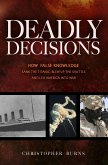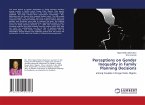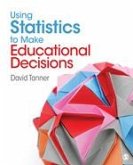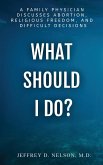Issues of Life and Death such as abortion, assisted suicide, capital punishment and others are among the most contentious in many societies. Whose rights are protected? How do these rights and protections change over time and who makes those decisions? Based on the author's award-winning and hugely popular undergraduate course at the University of Texas, this book explores these questions and the fundamentally sociological processes which underlie the quest for morality and justice in human societies. The Author's goal is not to advocate any particular moral "high ground" but to shed light on the social movements and social processes which are at the root of these seemingly personal moral questions. Under 200 printed pages, this slim paperback is priced and sized to be easily assigned in a variety of undergraduate courses that touch on the social bases underlying these contested and contentious issues.
Hinweis: Dieser Artikel kann nur an eine deutsche Lieferadresse ausgeliefert werden.
Hinweis: Dieser Artikel kann nur an eine deutsche Lieferadresse ausgeliefert werden.








